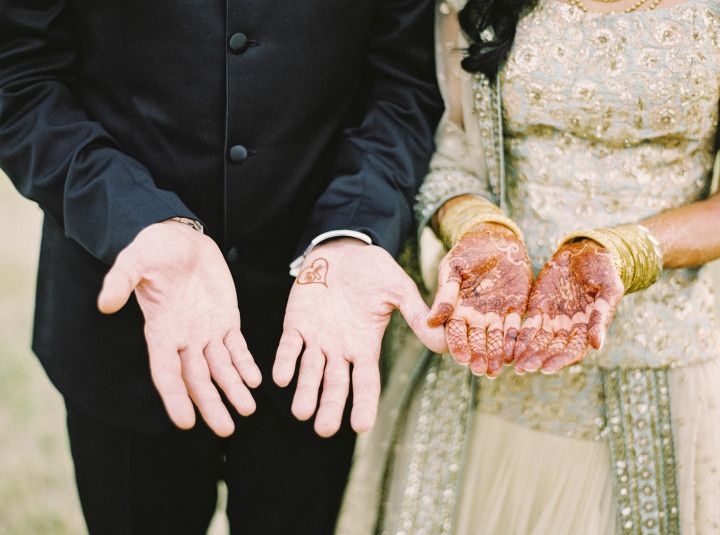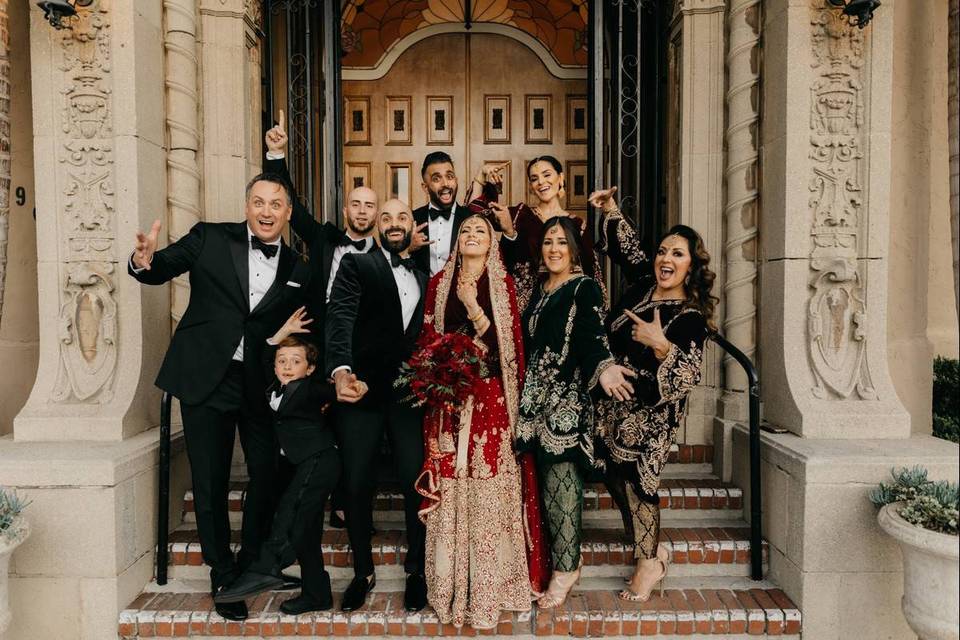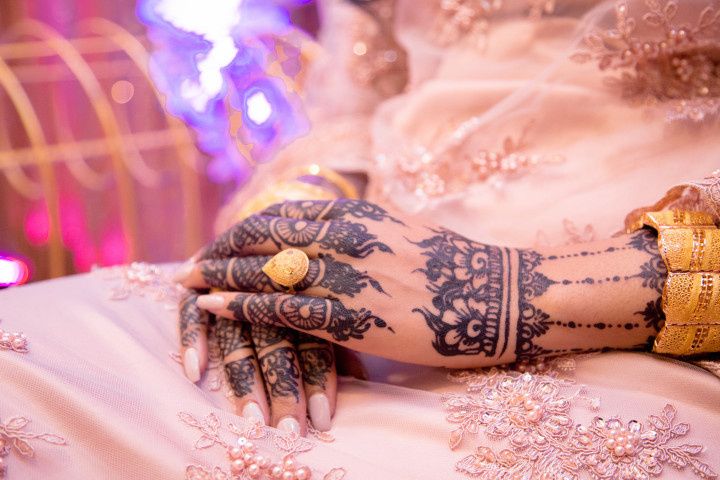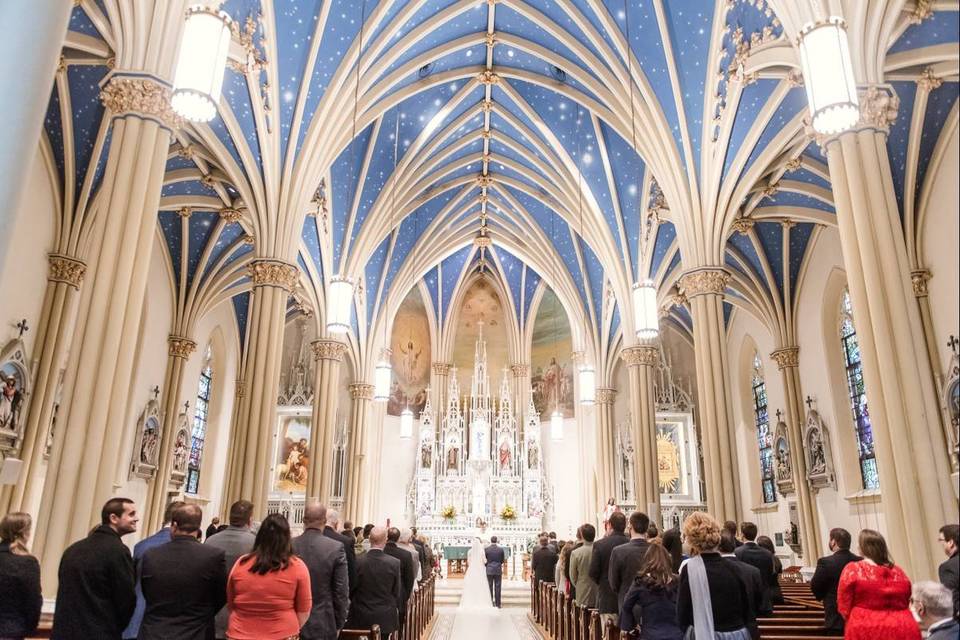Your First Muslim Wedding Ceremony? Here’s What to Expect.
Avoid embarrassing faux pas at your first Muslim wedding ceremony. Learn what to wear, what to do, and what not to do at your first Muslim wedding.
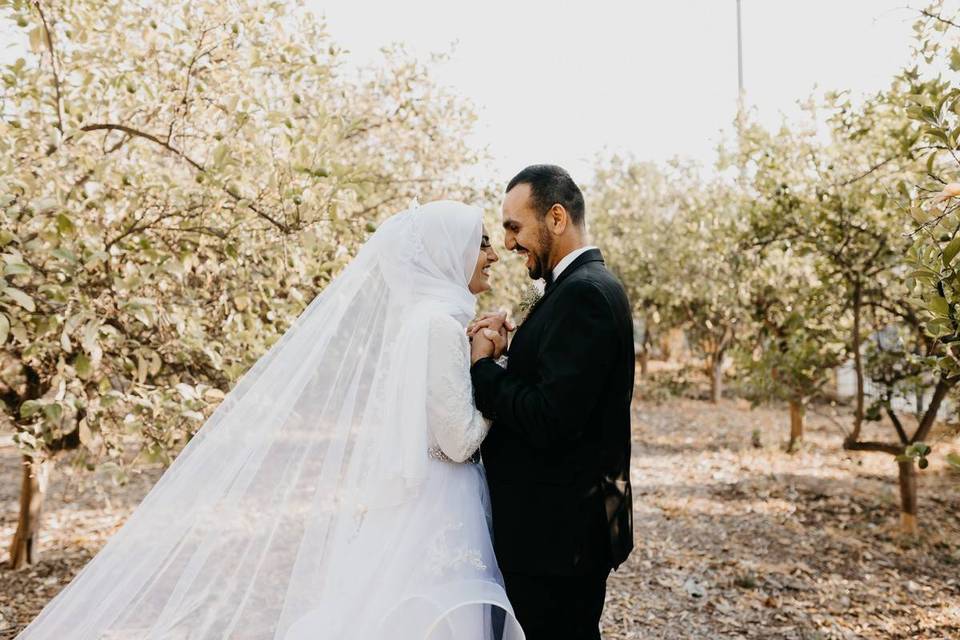
A Muslim wedding is a beautiful and soulful event that marks and celebrates a couple’s dedication to the faith. If you’ve never attended a Muslim religious ceremony, you’ll want to familiarize yourself with the basics of a Muslim marriage ceremony so you’ll know what to wear and what to expect.
Here’s what to expect at your first Muslim wedding ceremony and reception.
Dress respectfully in the mosque and at the reception.
Muslim houses of worship are solemn places where members of the faith gather daily to pray. As such, men and women will want to dress modestly for a Muslim wedding ceremony. Generally, long pants or longer dresses and skirts are most appropriate. Folks of any gender should avoid showing your bare arms as well. Women might be expected to cover their heads too, so bring along a scarf.
For the reception, the same clothing rules apply, but you most likely won’t need to keep your head covered.
You’ll have to remove your shoes in the mosque.
If you’re invited to the Muslim wedding ceremony, be prepared to remove your shoes before entering the sacred part of the mosque. There will likely be a rack where you can place your shoes and retrieve before you leave. You’ll be asked to do this so that you don’t track dirt inside the mosque where believers pray on the carpet.
Men and women will sit separately during a Muslim wedding ceremony.
The Muslim marriage ceremony features gender separation within the mosque. Wedding receptions will likely have some form of gender separation as well, but to a different degree. For example, there might be separate rooms for men and women to celebrate, a partition between the reception venue, or men and women might simply be grouped at different tables. If you’re not an observant Muslim, your hosts might seat you at a coed table with other non-Muslims, though.
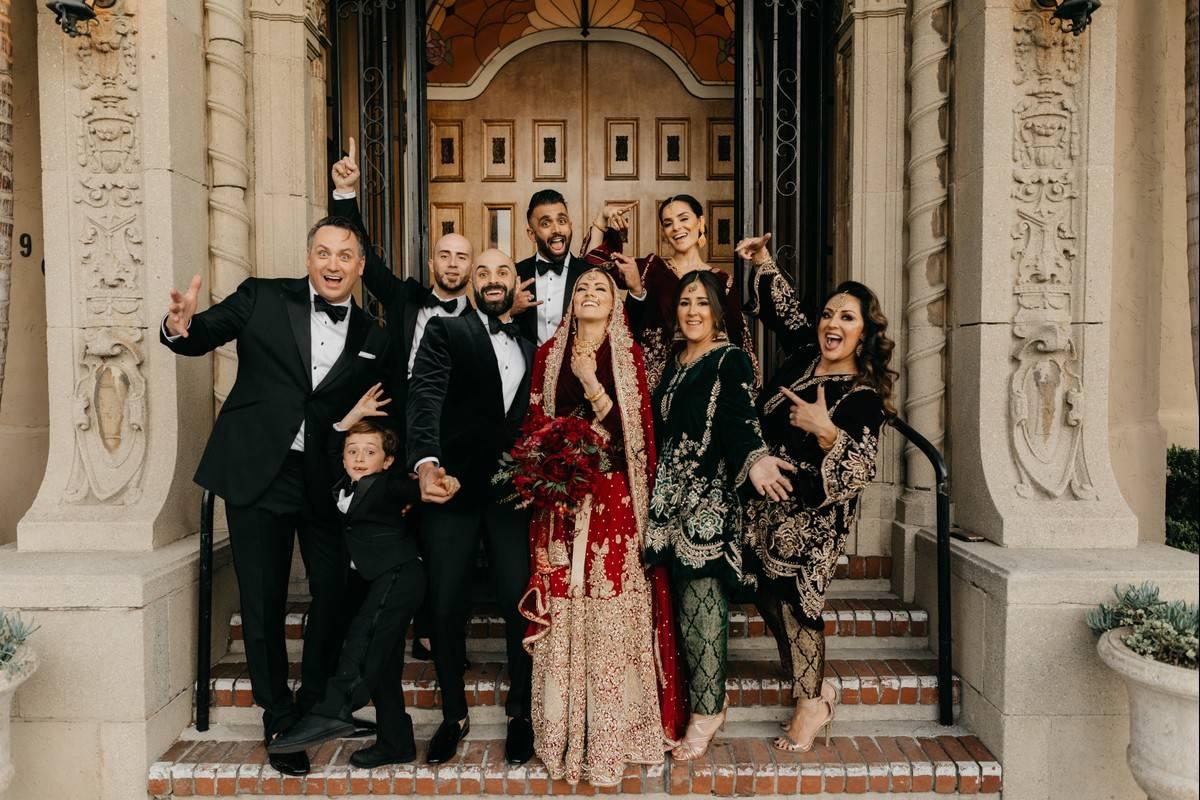
Muslim wedding ceremonies are short and sweet.
The average wedding ceremony is less than an hour, but Nikah, a muslim marriage ceremony, will still likely be the shortest you’ve attended. There are three main parts:
Mehr is a ceremonial presentation of gifts, money or other meaningful offering to the bride, from the groom. Many times the bride’s engagement ring is considered part of the mehr. At this time, the bride and groom are not able to see each other. Next, both bride and groom need to consent to the marriage by saying qubool hai three times each when asked by the Imam (religious officiant).
Nikah-Namah is the Muslim marriage contract that the bride and groom sign in front of their guests. It’s read aloud in Arabic during the wedding ceremony and is signed at this time as well. Verses from the Koran are read during a short sermon and the couple is officially wed.
Savaqah is the last part of a Muslim wedding ceremony. As the couple recesses from the ceremony, the bride is showered with coins in celebration.
Mingling between genders is generally frowned upon.
If this is your first Muslim wedding, you might need to retrain your reflex to make new friends on the reception dance floor. Don’t dance, shake hands, or initiate physical contact with a Muslim person of the opposite gender, unless they prompt the interaction.
A Muslim wedding ceremony can be representative of various cultures.
Islam is a very popular religion and close to 25 percent of the world’s population are observers. As such, a Muslim wedding simply means the couple are members of the faith, but doesn’t dictate the culture of the couple. Americans with roots in the Arabic world have sizable Muslim populations, but so do South Asian Americans, African-Americans, and Nigerian Americans. However, the Muslim faith is practiced by just about every ethnic group in the United States. This could mean that your first Muslim wedding might also be your first Nigerian wedding, or your first Indian wedding as well, which would add more and different social expectations.

